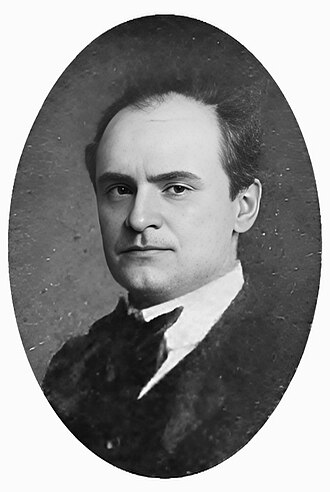William Walker Atkinson (1862-1932), writing under various pseudonyms including Yogi Ramacharaka, Theron Q. Dumont, and Magus Incognito, was one of the most prolific and influential authors of the New Thought movement. Through numerous books such as “Thought Vibration,” “Mind Power,” and “The Secret of Success,” he developed a comprehensive system for harnessing mental power to achieve practical results in life. As he stated: “Thought is a force – a manifestation of energy – having a magnet-like power of attraction.”
The Foundation: Mental Power
At the heart of Atkinson’s teaching lies the concept of Mental Power – the force that shapes our reality through concentrated thought and will. He taught that every thought has a vibratory nature that influences both the thinker and their environment. As he explained: “The Universe is governed by Law – one great Law. Its manifestations are multiform, but viewed from the Ultimate there is but one Law. We are familiar with some of its manifestations, but are almost totally ignorant of certain others.”

Core Principles of Mental Power
The Law of Attraction
Long before it became popularized, Atkinson explained that like attracts like in the mental world. Thoughts attract similar thoughts, circumstances, and individuals. However, his understanding went deeper than mere positive thinking:
Positive thoughts attract positive circumstances and negative thoughts attract negative circumstances – this is the basic law of mental attraction. But there is another law: Positive thoughts are stronger than negative ones, and tend to neutralize and transmute the latter.
The Power of Will
Atkinson emphasized the importance of developing a strong will power. He taught that will isn’t just determination but a distinct mental force that can be strengthened through practice. The will, properly developed, becomes the directing force for mental power.
Thought Control
Essential to his system is the ability to control and direct thoughts. As he wrote: “To control your mind, you must first realize that such control is possible.” He provided specific techniques for developing thought control:
Mental Mastery Practices
- Thought Direction
Learn to focus your thoughts deliberately on chosen subjects while excluding unwanted thoughts. Start with simple exercises and gradually increase complexity and duration. - Concentration Development
Practice fixing your attention on a single point or idea. Begin with physical objects and progress to abstract concepts. Maintain focus while gradually extending the time period. - Will Power Exercise
Set small, achievable tasks and complete them solely through will power. Gradually increase the difficulty of tasks as your will strengthens.
The Seven Principles of Success
Through his various works, Atkinson outlined seven key principles for achieving success:
- Mental Initiative
Take the lead in your mental world. Don’t be a passive recipient of thoughts and circumstances but actively direct your mental energy. - Desire Power
Cultivate strong, focused desire for your goals. As Atkinson noted: “Desire is the motivating force of all human action. The stronger the desire, the stronger the action.” - Will Power
Develop and apply your will consistently. Make it the directing force of your mental energy. - Idealization
Form clear mental pictures of your goals. See them in detail and maintain these images consistently. - Concentration
Focus your mental energy on one thing at a time. Avoid scattered thinking and divided attention. - Character Building
Develop positive mental attitudes and habits. Build strength, confidence, and persistence into your character. - Practical Application
Put your mental power to work in practical ways. Apply these principles to specific goals and circumstances.
Practical Methods for Daily Life
Mental Training
Atkinson provided specific exercises for developing mental power:
Morning Practice
Start each day with focused thought direction. Choose your mental state deliberately and maintain it.
Throughout the Day
Practice maintaining mental control amid daily activities. Use small moments for concentration practice.
Evening Review
Review your day’s thoughts and actions. Plan improvements for tomorrow.

Building Personal Magnetism
Atkinson wrote extensively about personal magnetism – the ability to influence others positively. Key aspects include:
Thought Projection
Learn to project thoughts clearly and positively toward others.
Mental Atmosphere
Cultivate a positive mental atmosphere that influences those around you.
Character Development
Build strength, confidence, and positivity into your personality.
The Science of Achievement
Atkinson’s approach to achievement involves:
Clear Goal Setting
Define exactly what you want to achieve. Make your goals specific and measurable.
Mental Planning
Create detailed mental plans for achieving your goals. See the steps clearly in your mind.
Persistent Action
Combine mental power with consistent physical action toward your goals.
Signs of Progress
As you apply these principles, look for:
- Increased mental control
- Better concentration ability
- Improved personal influence
- More consistent achievement of goals
- Greater sense of personal power
Overcoming Challenges
Atkinson addressed common challenges:
Mental Resistance
Overcome through persistent practice and gradual progress.
Environmental Influence
Create a protective mental atmosphere while building stronger thought habits.
Lack of Persistence
Develop will power through small, consistent victories.
Modern Application
Atkinson’s teachings remain relevant because they:
- Address fundamental mental laws that don’t change
- Provide practical methods for mental development
- Focus on results rather than theory
- Combine Eastern wisdom with Western practicality
The Path Forward
Success through mental power requires:
- Regular practice of mental exercises
- Consistent application of principles
- Patient development of abilities
- Practical use of mental force
As Atkinson concluded: “The mind, like a muscle, grows strong through exercise. But unlike physical exercise, there is no limit to mental development.”
His teachings offer a comprehensive system for developing and applying mental power to achieve practical success in life. Through understanding and applying these principles, anyone can develop greater mental control and achieve their desired outcomes.

